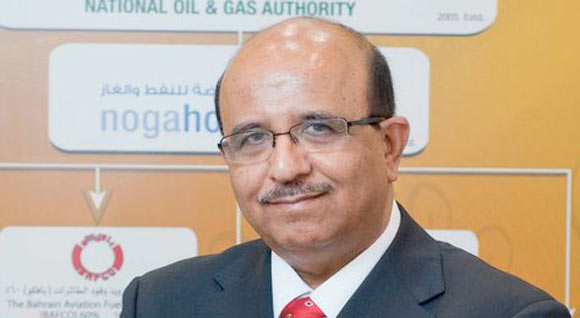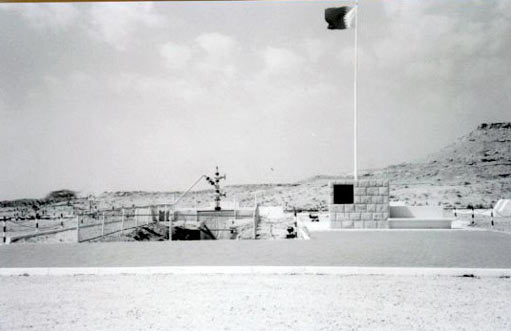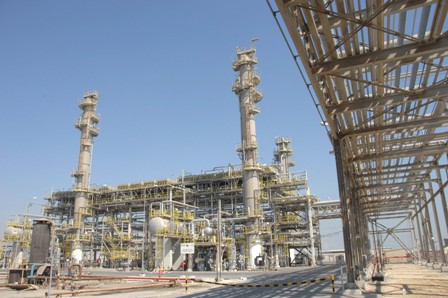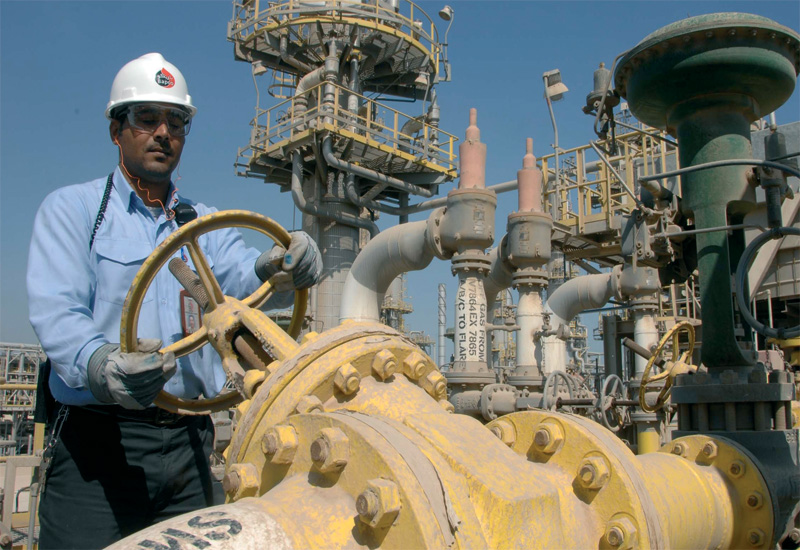BAPCO Bahrain Key Investments into Oil and Gas Industry in Bahrain
Faisal Al Mahroos, CEO of BAPCO (Bahrain Petroleum Company)
Oil provides a major support for Bahrain’s economy. It accounts for 80% of Bahrain’s export revenues and 20% of Bahrain’s GDP comes directly from the oil industry.
Interview with Faisal Al Mahroos, CEO of BAPCO (Bahrain Petroleum Company)

How do you foresee the role of oil in Bahrain’s economy and is the overdependence on oil a cause of concern to you?
Oil is very important for Bahrain. The first oil discovery happened in Bahrain in the whole of Arabia in 1932 and it has been the third country in the Middle East that discovered oil. Oil provides a major support for Bahrain’s economy. It accounts for 80% of Bahrain’s export revenues and 20% of Bahrain’s GDP comes directly from the oil industry.
We produce equivalent of 270,000 barrels of oil in the form of high pressure natural gas and also receive our share from Abu Safaa field shared with Saudi Arabia, which amounts to 150,000 barrels of crude oil per day.
Dependence is part of today’s life, we are all dependent on energy and this is a worldwide challenge. This is not only Bahrain’s challenge. As far as oil in Bahrain, we will continue to support our economy with production from our own natural resources. Today Bahrain produces around 40 000 barrels of crude oil and 10,000 barrels per day of vaporized oil from the same field.
We produce equivalent of 270,000 barrels of oil in the form of high pressure natural gas and also receive our share from Abu Safaa field shared with Saudi Arabia, which amounts to 150,000 barrels of crude oil per day. BAPCO process around 260 000 to 270 000 barrels of crude oil per day, mainly imported from Saudi ARAMCO and remaining part comes from oil produced in Bahrain. Afterwards, we refine this crude oil to various refined products. BAPCO handles an equivalent of around 600,000 barrels per day of various hydrocarbon products.
Oil is important part of Bahrain’s economy, it is the engine of the economy and hopeful will be the engine of growth. Bahrain has managed during the past 40 years to diversify its economy and today the financial sector provides more jobs than us the oil sector. Oil sector provides the revenue but others provide the jobs, services. Also, Bahrain has growing tourism sector. Bahrain manages quite skillfully to diversify its economy away from oil but still economy depends to a certain extent on the oil industry. At the end you are in the Arabian Gulf, the center of the most important oil region in the world.
Bahrain is planning on spending more than $20 billion in the next 20 years in developing its oil and gas sector. This will include an expenditure of $50 billion in development Bahrain oil field and $5 billion on modernizing the BAPCO refinery. This will increase Bahrain production rates to about 105 thousand barrels per day. Do you think that this investment is well spent in light of the diversification effort? How much space do you see for an international investor in this plan?
This will increase Bahrain field reserve by another 350,000 and will bring up the Bahrain field production to 100,000 barrels per day from current 40,000 barrels per day.
It is a well deserved investment because it will compliment our current produce and shall generate more revenue to the Government. The $10 billion will be invested to enhance the oil recovery from the Bahrain Field. This will increase Bahrain field reserve by another 350,000 and will bring up the Bahrain field production to 100,000 barrels per day from current 40,000 barrels per day. It will also prolong the life of the Bahrain field, produce revenue, and bring in knowledge as to how to handle mature fields. This knowledge is very important as it can be applied in other places so the knowledge gained also adds value.. The payout will be high and in a very short period, take us from the burden from importing gas.
If you look in general, Bahrain has one of the freest economies in the Middle East and BAPCO started as a subsidiary of an international company. Today we are modernizing our enterprise with a joint venture with an international oil firm. We are building a new lube base oil plant at the cost of $400,000,000 that will produce around 400,000 metric tons per hour of high quality, group three lube. We are exploring offshore areas of Bahrain with PTTEP and Occidental.
The whole industry by itself is an open sector; we welcome all investors and facilitate their presence and investments by supporting them with land and reasonable priced energy for gas or power. This is a tax free country so there is a lot of incentive to invest here. Bahrain has a mature economy with a mature judicial system. From every angle it is an investment that will give you a good return.
What is your main challenge behind these changes and what is BAPCO’s main responsibility toward Bahrain?
We have the Exploration and production business including our own gas, we have the  service business and we have the refinery business as well as the marketing business. We are now going through the downstream of the manufacturing phase by entering into the new lube base oil business. Basically, with the lube we joined hands with “Neste Oil”, they have the technology that we have licensed and we will try to grow from this entry point. It will give us an opportunity to enter into the manufacturing businesses of these new lube products. Lube is a new and promising market.
service business and we have the refinery business as well as the marketing business. We are now going through the downstream of the manufacturing phase by entering into the new lube base oil business. Basically, with the lube we joined hands with “Neste Oil”, they have the technology that we have licensed and we will try to grow from this entry point. It will give us an opportunity to enter into the manufacturing businesses of these new lube products. Lube is a new and promising market.
The challenge of this business is new for us, but, like any business, when you get into it, you will eventually master the business, and in the oil business you don’t start from scratch. BAPCO is a mature business with over 80 years of experience. I don’t think we will have difficulties understanding the new business or the new markets.
100% of our natural gas market is local.
Why do you want to expand your markets?
If you have seen today’s market, you know 10% of our refined product is consumed locally.
100% of our natural gas market is local. Most of our exported refined product goes to the Middle East, Africa and Asia which are the markets that we are focusing on.
However, the two countries which have the most promising market and will see the most growth and whose growth with directly impact the areas around them are India and China. These are the most challenging, most promising markets.
How do you compete with others on this market?
Being a well established industry and  company with 80 years of history and its own traditional customers gives us an edge. Having this edge in the market allows us to compete more easily than the new comers. At the same time we are known to be high quality and flexible, winning several awards in quality control.
company with 80 years of history and its own traditional customers gives us an edge. Having this edge in the market allows us to compete more easily than the new comers. At the same time we are known to be high quality and flexible, winning several awards in quality control.
The client trusts BAPCO and its operation and commitment to supply. We have never failed our customers. So we have an edge in the market with trust, ensuring that we can stand the competition.
How does BAPCO approach environmental protection?
Our policy is to comply with the most stringent environmental laws. We seek out the most stringent environmental laws, mostly from the West Coast United Estate. During the past 10 years we have invested heavily to become a fully environmentally compliant company in terms of our operation and products. Today, we are fully compliant in our entire operation. We have built a plant at $150,000,000 to remove the sulphur content of refinery gases.
Currently we are building waste water treatment plants at $120,000,000 to remove any trace elements from the refinery water. From the beginning of the year 2000 we started to produce green products, such as unleaded gasoline, and jet fuel, and in 2007 we started our ultra low sulphur diesel. The plan is to produce diesel that has as low as 5 PPM sulphur content. That amount of ultra low sulphur makes us compliant in stringent markets. We really invested heavily in complying with new environmental regulations.
Tell us, first, what is your plans for this year, do you have any big projects to announce? Also, how do you see your short term development?
Most importantly is Bahrain’s Joint Venture with Occidental and Mubadala. We have also started our exploration program. The most important project we have now is working with Occidental to explore deep gas resources at a depth of 10,000 and below.
We have attempted to produce these resources in the 70’s 80’s and the early 90’s when we had five deep wells but the technology was not sufficient. With the growth of shale gas and unconventional gas in the U.S., who have more than 60,000 wells, this technology has become mature enough to produce 50% of U.S. gas. We would like to tap into these resources.
Occidental were selected to tap these resources and BAPCO‘s geologists would work hand in hand with them. As far as downstream businesses, we are planning to build a new refinery, which would be much bigger in capacity than the current refinery and would produce only the high value product, which is diesel, kerosene and gasoline instead of the low value products such as fuel oil. With the new technology BAPCO will be able to convert the bottom of the barrels to a light product. This is a major project for BAPCO in its refining business.
What is your vision of BAPCO?
As BAPCO is an integrated oil and gas  company at the border of the Kingdom of Bahrain, I would like to see BAPCO grow as an international oil company. As of today we are a player in the international market but we would like to be in various international businesses such as marketing and in exploration and production. BAPCO‘s knowledge base will allow it to grow beyond its current regional activity.
company at the border of the Kingdom of Bahrain, I would like to see BAPCO grow as an international oil company. As of today we are a player in the international market but we would like to be in various international businesses such as marketing and in exploration and production. BAPCO‘s knowledge base will allow it to grow beyond its current regional activity.
We will have 400,000 metric tons of high quality lubes, and this current contract with Neste oil, the plant in Bahrain, they own 45% of it and we own 55%. We are the operator of the plant but they do the marketing. This arrangement is set up for five years, after that we can market the product ourselves and we will need to have the knowledge of that market, meaning we would get the market mark up.
If we go in the lube, we must go into the lube business which is totally different from the market of the refined products. It is a business that you have to work hand in hand with the auto industry because a different type of additive has to be added to the product for each type of car. Therefore, you need to work with your customer. We sell to ‘Total’ and they have a big trading arm, they sell to Africa and Asia, we sell to them and they sell to someone else. The oil industry is very large and thus has a lot of opportunities.
What do you communicate about? Do you communicate about the environment, about sales?
We communicate about products, new projects, about environmental compliance
We communicate about products, new projects, about environmental compliance, safety and health which are the three that we are the most concerned about. We are members of several organizations that hold the standards of environmental compliance.